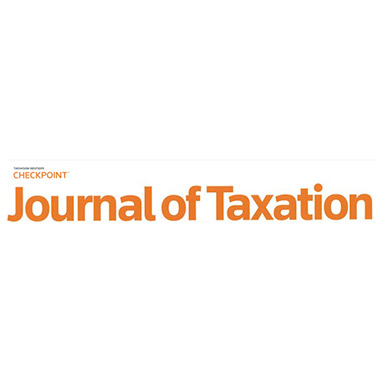There is a higher likelihood of IRS fines and penalties for American taxpayers who fail to report their income or hide their foreign accounts, assets, or investments. In the past decade, the Internal Revenue Service has given priority to enforcing compliance for foreign accounts.
International tax fraud can result in serious consequences such as outstanding taxes, liens, levies, penalties, fines, and imprisonment. Whether done intentionally or otherwise, the IRS will move forward with criminal proceedings if you have failed to adhere to your reporting requirements. However, with the help of a skilled international tax fraud defense lawyer, you can potentially avoid prosecution and restore your compliance with the tax system.
For a free case assessment with our international tax fraud defense lawyers, call McCormick Tax Law today at (215) 630-0861.
Understanding International Tax Fraud
If the IRS contacts a person for the first time, it is usually about civil violations related to filing their taxes. If you have been contacted by the IRS about a tax violation, it is essential to contact our international tax fraud defense attorneys to assist with getting into compliance before serious penalties are applied. The most commonly encountered problems include international tax audits or examinations, FBAR audits, FATCA audits, special agent investigations, and offshore tax fraud.
Whether a Taxpayer is under a regular audit or a more serious eggshell or reverse eggshell audit, the stakes are high. If the Internal Revenue Service (IRS) suspects willful action, penalties can be as much as 75% of tax liability and 50% of the maximum balance of unreported accounts, investments, or assets. The penalties include a minimum of $100,000 annually (adjusted for inflation).
An IRS offshore criminal tax investigation is more severe and can result in excessive fines and penalties, an indictment, and a possible jail or prison sentence. A criminal tax investigation starts when the individual is visited by the Special Agents who represent the criminal division of the IRS.
In contrast, a civil tax audit only determines if the taxpayer owes any taxes, penalties, or interest. A criminal tax investigation can lead to financial penalties and imprisonment. International tax investigations are increasing, especially in cases involving retained income compliance and cryptocurrency compliance. Having offshore or foreign accounts increases the likelihood of tax and criminal consequences.
This is because, under the Foreign Account Tax Compliance Act (FATCA), it is easier to detect U.S. taxpayers. More than 110 countries and 300,000 Foreign Financial Institutions (FFIs) have agreed to exchange financial information with the United States Government and vice versa. Additionally, the U.S. government has identified over 140 foreign financial institutions that have assisted taxpayers with tax fraud.
The Penalties for International Tax Fraud
If you fail to report or disclose your foreign accounts and assets, you might face IRS penalties. These penalties can range from hefty fines to extensive prison sentences. Here are some of the potential consequences you could face for not complying with the reporting requirements:
Failure to File Penalties
In case you miss the deadline for filing, there is a possibility that you might incur a penalty for failure to file. Similarly, if you do not pay by the due date, you might be subjected to a penalty for failure to pay. Generally, the penalty for failure to file is higher than the penalty for failure to pay. The penalty for late filing usually amounts to 5 percent of the unpaid taxes for each month or part of a month that a return is overdue, and it will not exceed 25 percent of your unpaid taxes. If you file your return more than 60 days after the due date or the extended due date, the minimum penalty is the smaller of $135 or 100 percent of the unpaid tax.
Failure to Pay Penalties
If the taxes are not paid by the due date, a penalty of ½ of 1 percent of the unpaid taxes is assessed for each month or partial month after the due date. The penalty can amount to up to 25 percent of the unpaid taxes. When the failure-to-file and failure-to-pay penalties are applicable in the same month, the failure-to-file penalty of 5 percent is reduced by the failure-to-pay penalty.
If the tax return is filed more than 60 days after the due date or the extended due date, the minimum penalty is either $135 or 100 percent of the unpaid tax, whichever is smaller. You will not be required to pay a failure-to-file or failure-to-pay penalty if you can demonstrate that the failure to file or pay on time was due to reasonable cause and not willful neglect.
Tax Evasion Penalties
If someone submits a false tax return, they might face imprisonment for up to three years and a fine of up to $250,000. If someone fails to file their tax return, they might face imprisonment for up to one year and a fine of up to $100,000. If someone fails to file an FBAR, they might face imprisonment for up to ten years and be subject to criminal penalties of up to $500,000. If someone is found guilty of a conspiracy to defraud the government regarding claims, they might face imprisonment for up to 10 years or a fine of up to $250,000. If someone is found guilty of conspiracy to commit an offense or defraud the United States, they might face imprisonment for up to five years and a fine of up to $250,000.
Civil Tax Fraud Penalties
In cases where fraud is determined to be the cause of any part of a tax underpayment that must be reported in a return, the total tax owed will be increased by an additional amount that is equal to 75% of the portion of the underpayment that is attributed to fraudulent activity.
Penalties for failing to file an FBAR
Failing to file an FBAR intentionally can result in a civil penalty of either $100,000 or 50% of the total balance of the foreign financial account per violation, whichever is greater. In case of non-willful violations, the IRS might charge a penalty of $10,000 per violation if it is determined that the violation was not due to reasonable cause.
The act of willfully failing to file an FBAR or filing a false FBAR is considered a violation and is subject to criminal penalties. Other criminal charges might include conspiracy to defraud the government regarding claims and conspiracy to commit an offense or defraud the United States.
Our International Tax Fraud Defense Attorneys Can Help
If you need a free case evaluation with our international tax fraud defense attorneys, contact McCormick Tax Law at (215) 630-0861.










